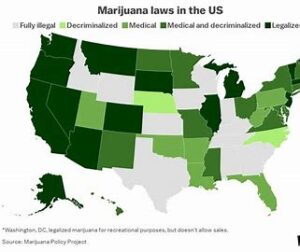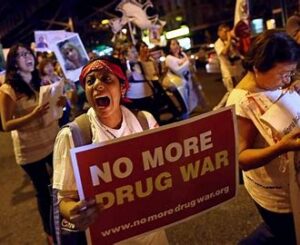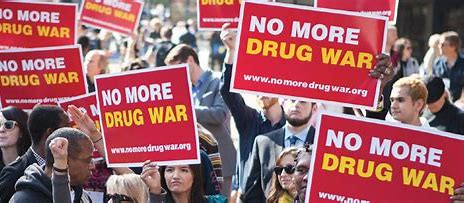Title: The Drug Legalization Debate in the USA: Exploring Perspectives, Implications, and Policy Considerations
Abstract:
The drug legalization debate in the United States has been a topic of intense discussion, with advocates and opponents presenting diverse arguments regarding the potential benefits and drawbacks of legalizing certain drugs. This essay provides a comprehensive analysis of the drug legalization debate in the USA, examining the historical context, social dynamics, public health implications, and policy considerations surrounding this contentious issue. By exploring various perspectives, empirical evidence, and case studies, this essay aims to deepen understanding of the complexities inherent in drug legalization, including its impacts on drug use patterns, crime rates, public health outcomes, and societal norms. Furthermore, it discusses the challenges and opportunities associated with drug legalization, highlighting the importance of evidence-based policy approaches, harm reduction strategies, and holistic approaches to addressing substance abuse and addiction.
Keywords: Drug Legalization, Drug Policy, Public Health, Substance Abuse, USA
-
Introduction
The drug legalization debate in the United States has long been a polarizing issue, pitting advocates for drug policy reform against opponents concerned about the potential consequences of legalizing certain substances. At the heart of the debate are questions about individual liberty, public health, criminal justice, and societal values. While some argue that drug legalization would reduce crime, generate tax revenue, and improve public health outcomes, others express concerns about increased drug use, addiction rates, and social harm.

This essay provides a comprehensive analysis of the drug legalization debate in the USA, exploring the historical context, social dynamics, public health implications, and policy considerations surrounding this contentious issue. By examining various perspectives, empirical evidence, and case studies, this essay aims to deepen understanding of the complexities inherent in drug legalization and stimulate informed dialogue about the most effective strategies for addressing substance abuse and addiction in society.
-
Historical Context of Drug Policy in the USA
2.1 Early Drug Regulation:
The regulation of psychoactive substances in the United States dates back to the 19th century, with the passage of laws targeting substances such as opium, cocaine, and alcohol. Early drug regulations were often motivated by concerns about public health, addiction, and social order, reflecting evolving societal attitudes towards drug use and addiction.
2.2 War on Drugs:
The modern era of drug policy in the USA was shaped by the “War on Drugs” initiated in the 1970s, characterized by punitive approaches to drug control, including strict enforcement measures, mandatory minimum sentences, and international drug interdiction efforts. The War on Drugs was driven by concerns about drug-related crime, addiction, and social decay, leading to the expansion of law enforcement efforts and incarceration rates for drug offenses.
2.3 Shift Towards Drug Policy Reform:
In recent decades, there has been a growing recognition of the limitations and unintended consequences of punitive drug policies, leading to calls for drug policy reform and alternative approaches to addressing substance abuse and addiction. Advocates for drug policy reform argue that prohibitionist approaches have failed to reduce drug use, fuel mass incarceration, and exacerbate health disparities, necessitating a shift towards evidence-based, harm reduction strategies.
-
Arguments for Drug Legalization

3.1 Public Health Benefits:
Proponents of drug legalization argue that regulating and taxing certain drugs could generate revenue for public health initiatives, fund addiction treatment programs, and reduce the harms associated with illicit drug markets. Legalization could facilitate access to harm reduction services, such as needle exchange programs and supervised consumption sites, which have been shown to reduce the spread of infectious diseases and overdose deaths.
3.2 Criminal Justice Reform:
Drug legalization advocates contend that removing criminal penalties for drug possession and use could alleviate the burden on the criminal justice system, reduce racial disparities in drug enforcement, and redirect resources towards prevention, treatment, and rehabilitation efforts. Legalization could also mitigate the collateral consequences of drug convictions, such as barriers to employment, housing, and education.
3.3 Economic Benefits:
Legalizing and regulating certain drugs could create new economic opportunities, including job creation, tax revenue generation, and business innovation in the legal cannabis industry. Proponents argue that legalizing drugs could shift resources away from illicit markets controlled by criminal organizations towards legal, regulated markets overseen by government agencies, promoting consumer safety and product quality standards.
3.4 Individual Liberty:
Advocates for drug legalization emphasize the importance of individual autonomy and personal freedom in making decisions about drug use, arguing that adults should have the right to consume psychoactive substances responsibly without fear of criminal prosecution. Legalization could empower individuals to make informed choices about drug use, seek help if needed, and access evidence-based harm reduction services without stigma or discrimination.
-
Arguments Against Drug Legalization
4.1 Public Health Risks:

Opponents of drug legalization raise concerns about the potential public health consequences of making certain drugs more accessible and socially acceptable. Legalization could lead to increased drug use, addiction rates, and adverse health outcomes, including substance use disorders, mental health disorders, and drug-related emergencies.
4.2 Social Harm:
Critics argue that drug legalization could exacerbate social problems, such as drug dependence, family dysfunction, and community disintegration, by normalizing drug use and glamorizing drug culture. Legalization could undermine social norms against drug use, particularly among youth, and perpetuate stereotypes about drug use as a rite of passage or lifestyle choice.
4.3 Crime and Violence:
Opponents of drug legalization express concerns about the potential for increased crime and violence associated with the legal drug trade, including drug-related crime, organized crime, and drug trafficking. Legalizing drugs could create new opportunities for criminal enterprises to exploit legal loopholes, evade regulation, and profit from illicit markets.
4.4 Public Safety Risks:
Critics argue that drug legalization could pose risks to public safety, including impaired driving, workplace accidents, and substance-related emergencies. Legalization could increase the availability and potency of psychoactive substances, leading to unintended consequences such as accidental overdoses, drug poisoning, and impaired judgment.
-
Implications of Drug Legalization
5.1 Public Health Outcomes:
The impact of drug legalization on public health outcomes is a subject of ongoing debate and empirical research. While some studies suggest that legalization could reduce drug-related harms, such as overdose deaths and infectious diseases, others raise concerns about increased drug use, addiction rates, and long-term health consequences.

5.2 Criminal Justice Reform:
Drug legalization has the potential to alleviate the burden on the criminal justice system by reducing arrests, prosecutions, and incarcerations for drug offenses. By shifting resources towards prevention, treatment, and rehabilitation efforts, legalization could promote alternatives to incarceration and address underlying social determinants of substance abuse and addiction.
5.3 Economic Considerations:
The economic implications of drug legalization vary depending on the specific drug and regulatory framework. Legalizing and regulating certain drugs could create new economic opportunities, generate tax revenue, and stimulate job growth in the legal cannabis industry. However, legalization may also entail costs associated with regulation, enforcement, and public health interventions.
5.4 Social and Cultural Shifts:
Drug legalization could lead to significant social and cultural shifts in attitudes towards drug use, addiction, and public policy. Legalization may challenge prevailing stigmas and stereotypes about drug users, promote harm reduction strategies, and foster more open discussions about substance abuse and addiction in society.
-
Policy Considerations and Approaches
6.1 Evidence-Based Policy:
Drug policy decisions should be informed by empirical evidence, scientific research, and public health principles. Policymakers should prioritize evidence-based interventions, harm reduction strategies, and holistic approaches to addressing substance abuse and addiction, including prevention, treatment, and recovery support services.
6.2 Regulation and Oversight:
Drug legalization requires careful regulation and oversight to minimize risks to public health, safety, and well-being. Regulatory frameworks should establish clear standards for product safety, potency, labeling, and marketing, while also addressing issues such as youth access, impaired driving, and workplace safety.
6.3 Harm Reduction Strategies:
Drug legalization should be accompanied by comprehensive harm reduction strategies aimed at reducing the negative consequences of drug use and addiction. Harm reduction interventions, such as needle exchange programs, overdose prevention services, and medication-assisted treatment, can help prevent infectious diseases, overdose deaths, and other adverse health outcomes.

Education and Prevention:
Drug legalization efforts should be complemented by education and prevention initiatives aimed at promoting responsible drug use, reducing stigma, and empowering individuals to make informed choices about substance use. Prevention programs should target vulnerable populations, such as youth, adolescents, and communities disproportionately affected by substance abuse and addiction.
-
Conclusion
The drug legalization debate in the United States encompasses a range of complex issues, including public health, criminal justice, economic, and societal considerations. While advocates argue that drug legalization could reduce crime, generate tax revenue, and improve public health outcomes, opponents express concerns about increased drug use, addiction rates, and social harm. Addressing the challenges and opportunities associated with drug legalization requires evidence-based policy approaches, harm reduction strategies, and holistic approaches to addressing substance abuse and addiction. By fostering informed dialogue, evidence-based decision-making, and collaborative efforts across sectors, policymakers and stakeholders can work towards solutions that promote public health, social justice, and community well-being in the USA.



